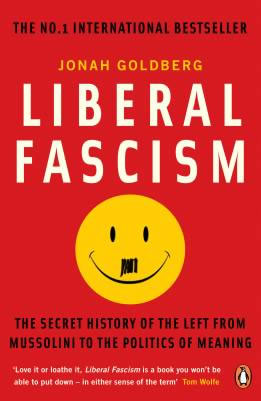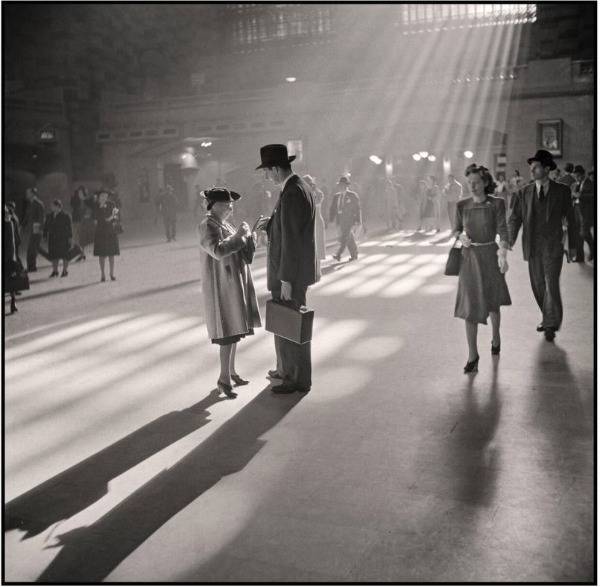As I write, the media are awash with dispute over the banning of a far-right Dutch politician from entering Britain, on grounds that his anti-Muslim, anti-immigrant views pose a threat to public security. I've just called Geert Wilders "far-right", but he calls himself a liberal, and heads something named the Freedom Party. His supporters - but also many who genuinely detest his ideas - protest against the ban on the classic liberal grounds of defending free speech. Many invoke that archetypal catchphrase of liberalism: "I disagree with what he says, but must defend his right to say it." But Foreign Secretary David Miliband, who would I think also call himself a liberal, upheld the proscription with an unacknowledged quotation from Oliver Wendell Holmes, one which has become as timeworn a liberal cliché as the words (wrongly) attributed to Voltaire: there must be limits on free speech. There is no "right" to cry "Fire!" in a crowded theatre.
 And into this febrile environment come two preposterous new books - Richard Seymour's The Liberal Defence of Murder and Jonah Goldberg's Liberal Fascism - both of which think they have found out who is responsible for our current predicament. They are both diatribes - Seymour's from the British far left, Goldberg's from America's ultra-right - directed at the same target: the follies, errors, pretensions and crimes of liberalism. Or rather, of liberals, for neither Jonah Goldberg nor Richard Seymour really tries to show that the large, heterogeneous assembly of individuals they abuse is actually united by anything much at all, and certainly not by a shared philosophy or ideology that could aptly be labelled an "ism". Indeed for both authors the word "liberal" in their titles really means something more like "a bunch of people I can't stand who are somewhere vaguely to the left (for Goldberg) or right (for Seymour) of me".
And into this febrile environment come two preposterous new books - Richard Seymour's The Liberal Defence of Murder and Jonah Goldberg's Liberal Fascism - both of which think they have found out who is responsible for our current predicament. They are both diatribes - Seymour's from the British far left, Goldberg's from America's ultra-right - directed at the same target: the follies, errors, pretensions and crimes of liberalism. Or rather, of liberals, for neither Jonah Goldberg nor Richard Seymour really tries to show that the large, heterogeneous assembly of individuals they abuse is actually united by anything much at all, and certainly not by a shared philosophy or ideology that could aptly be labelled an "ism". Indeed for both authors the word "liberal" in their titles really means something more like "a bunch of people I can't stand who are somewhere vaguely to the left (for Goldberg) or right (for Seymour) of me".
What Goldberg means by "liberal" is - very broadly indeed, and overlooking for a moment the multiple inconsistencies in his usage - "leftish", which is the standard if idiosyncratic US understanding, even if it puzzles most of the rest of the world. One of his most basic faults is his refusal to think about, and his repeated display of astonishing ignorance regarding, anywhere at all outside the USA's borders. "Refusal", not "failure", is the right word: a toxic disdain for everyone un-American and especially for Europeans snakes through the whole book as it had in his previous writing. (Goldberg was one of the prime movers in the burst of childish Francophobia - remember "cheese-eating surrender monkeys"? - which swept the US media a few years back.) When he remarks that Belgium is perhaps not quite the worst place in the world, this is for him evidently a huge and reluctant concession. His scattered allusions to European history are almost all absurdly inaccurate. His definition of fascism is still looser and even less coherent: he seems mostly to mean anyone or anything trying to impose uniformity on a society - unless it's for causes he likes.
Throw in the undoubted (but by Goldberg systematically misunderstood) fact that Mussolini and some leading Nazis sometimes called themselves "socialists", and he has the shaky basis for his assertion that "liberal fascism" is not quite an oxymoron. So, according to Goldberg, US Presidents Woodrow Wilson, both Roosevelts, Kennedy and Johnson were all fascists. So are Hillary Clinton, environmentalists, welfarists, Afrocentrists, multiculturalists, most US religious leaders . . . Repeatedly, he says that in so labelling them he doesn't necessarily mean they're all racists, Nazis or anti-Semites. But these supposed reassurances are so invariably immediately followed by further tirades of abuse against the whole wildly promiscuous range of targets, they are just the pseudo-intellectual equivalent of the crack addict's avowals of abstinence - until the next pipe.
Richard Seymour is just a bit more lucid and consistent, and has read a bit more history. Indeed large parts of The Liberal Defence of Murder are devoted to a potted chronicle of past liberals' and social democrats' complicity in colonial expansion and its atrocities. These, for him, are the precursors and models for the "pro-war left" today which is his main target. He hits some of the chosen marks bang on: but since the target is so big, his shooting so copious and so rapid, his quarrying of sources so relentless but so often reliant on selective and out-of-context quotation, that is no very impressive achievement. I should maybe confess that I feel considerably more sympathy for Seymour's basic stance than I do for Goldberg's, and share some of his fury at the shifty apologetics for massacre - in Iraq, Afghanistan, Gaza and too many more places - which have come from various supposedly liberal or leftish writers. But precisely because Seymour has (in my view) a better case than Goldberg, the overstatements, distortions, factual errors and not least near-endless repetitions in his book are all the more infuriating.
The Wilders affair, then, connects with the themes and the styles of these two books in another way. They may provoke in the exasperated reader a thoroughly illiberal desire - illiberal even by the standards of Goldberg's and Seymour's almost infinitely capacious conceptions of "liberalism". If we can ban visitors as threats to public safety, could we not also ban books as dangers to public sanity? Goldberg's extraordinarily meandering, often incoherent wordiness and Seymour's unremitting hyperbole and repetition surely pose such a threat to all who try to read them. Might we not indeed go further and implement a general prohibition on bloggers writing books? Both these culprits fall into that rapidly growing category.
Almost all Seymour's previous writing appears on his well-known blog Lenin's Tomb, while Goldberg, as well as much pontificating on other media, indulges his blogorrhea on the National Review Online and Bloggingheads.TV. Their shared apparent inability ever to use ten words where a hundred will do, to ask themselves whether their thoughts will be worth rereading next week or next year, or even whether what they wrote today is consistent with yesterday's screed: all these are endemic and maybe fairly harmless failings in the blogosphere. Books, though, are supposed to be a bit different. People pay real money and give up precious shelf-space for them. They are supposed to have some enduring value, however slight. At the very least, writers shifting genres need to think about necessary changes in the way they write, and discover the mysteries of self-editing.
Perhaps, though, people like our two miscreants are incapable of that, and need - for society's protection - some harsher punishment than a mere ban. They need to be locked up, somewhere without access to email, phone, Web, TV or radio, without human contact except (of course) that they'd be forced to be 24/7 in one another's company, and with nothing to read except the Collected Works of JS Mill. To avoid either kicking or boring each other to death, they might feel forced to read him. It just might do them some good.
Read Owen Hatherley's response to this article from the May/June 2009 issue of New Humanist
Liberal Fascism by Jonah Goldberg (Penguin) and The Liberal Defence of Murder by Richard Seymour (Verso) are out now




